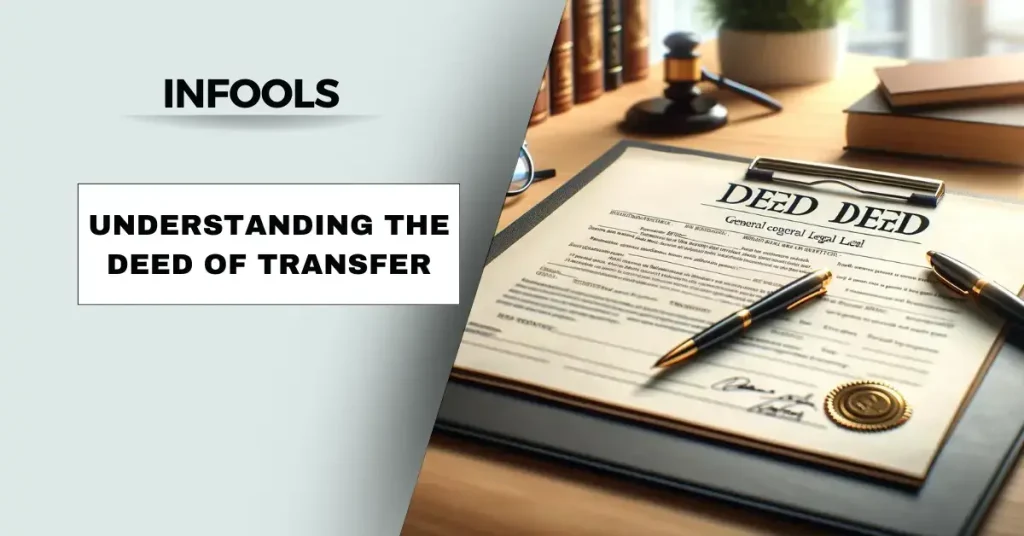When it comes to transferring ownership of real estate, the process involves more than just handing over keys. The legal transfer of a deed is an essential step in ensuring the new owner’s rights are protected and recognized.
how much does a lawyer charge to transfer a deed? On average, a lawyer may charge anywhere from $250 to $500 to handle a straightforward deed transfer, such as a quitclaim deed.
This fee generally covers the drafting and execution of the deed to ensure it complies with local laws and is properly recorded.
KEY POINTS
- Lawyer fees for straightforward deed transfers typically range from $250 to $500, but may increase for complex cases.
- Deed transfers are legally binding actions that require careful documentation and adherence to local laws.
- Costs for deed transfers vary by state, with additional fees for recording and potential transfer taxes.
- DIY deed transfers are possible but carry risks of legal complications and errors.
- Hiring a lawyer for deed transfers ensures compliance with legal standards and helps avoid costly mistakes.
Table of Contents
Legal intricacies of Deed Transfers
Deed transfers are not merely administrative; they are legally binding actions that affect property rights.
The process ensures clarity in the ownership history of a property, crucial for resolving any disputes and for future transactions.
Ensuring that a deed transfer is conducted properly is vital to avoiding legal complications that could arise from unclear property lines or disputed ownership rights.
Understanding the Deed of Transfer
A deed of transfer, commonly referred to as a property deed, is a legal document that facilitates the change of ownership of real estate property.
This document specifies the granter (seller) and the grantee (buyer) along with a precise description of the property being transferred.
Components of a Deed of Transfer
The deed of transfer contains several key elements:
- Identity of the parties: The names and legal capacities of both the seller and buyer.
- Description of the ownership of property: Detailed information about the property, including its boundaries and any relevant rights or covenants.
- Conveyance language: Legal terminology that specifies the transfer of property rights.
- Signatures and legal formalities: The deed must be signed by the parties involved and often requires notarization to be legally binding.

Legal Implications of a Deed Transfer
The transfer of a deed has profound legal implications. It not only changes ownership on paper but also affects property taxes, inheritance, and even municipal planning.
Moreover, if not executed correctly, a deed transfer can lead to legal disputes over property boundaries or title defects, which can be costly and time-consuming to resolve.
Therefore, understanding the nuances of deed transfers is crucial for anyone involved in real estate transactions.
Read More: What is The Average Retainer Fee For A Criminal Lawyer?
How Much Does a Lawyer Charge To Transfer A Deed?: in Various States and Countries
Transferring property ownership via a deed involves certain costs that can vary significantly from one state to another.
What are the lawyer fees for deed Transfer?
The lawyer fees for handling a deed transfer can vary widely depending on several factors such as the complexity of the transaction, the location, and the attorney’s experience. Typically, you might expect to see a range of fees:
- Flat Fees: Many attorneys charge a flat fee for straightforward deed transfers, especially for simple cases like quitclaim deeds. These fees can range from $250 to $500 on average.
- Hourly Rates: If the deed transfer involves more complex negotiations or legal challenges, lawyers might charge by the hour. Hourly rates can vary from $150 to $350 or more, depending on the lawyer’s expertise and the region.
Deed Transfer Costs in California
In California, the costs to transfer a deed include not only the attorney fees but also recording fees and transfer taxes.
The recording fee is about $90 for the first page of the deed, and transfer taxes can range from $1.10 per $1,000 of the property value in most counties, with some cities imposing additional taxes.
For example, San Francisco has a progressive tax rate that can go up to 2.5% depending on the property value.
Deed Transfer Costs in Texas
Texas does not impose a state transfer tax on real estate transactions, which can lower the overall cost of transferring a deed.
However, the typical attorney’s fee for a straightforward deed transfer can range from $250 to $500. Recording fees in Texas are approximately $25 for the first page of the deed and $4 for each additional page.
Deed Transfer Costs in Florida
Florida’s deed transfer costs include a state documentary stamp tax, which is $0.70 per $100 of the property’s value for properties located outside of Miami-Dade County.
In Miami-Dade, the tax is $0.60 per $100 for single-family residences. Attorney fees for deed transfers in Florida typically range between $500 to $1,500 depending on the complexity of the transaction.
Deed Transfer Costs in the UK
In the UK, the cost to transfer a deed is influenced by the property’s value and whether the property is registered.
Legal fees for transferring a registered property can range from £250 to £600, while the cost for unregistered properties can be higher due to the additional work involved. Stamp duty may also apply, depending on the value of the property and the buyer’s circumstances.
The Influence of Legal Fees on Property Transfers
Legal fees play a significant role in the overall cost of transferring property deeds. Understanding how these fees are structured and what they cover is crucial for anyone involved in a property transaction.
Structure of Legal Fees
Attorneys may charge for deed transfers in several ways: a flat fee, an hourly rate, or a contingency fee. Flat fees are common for straightforward transactions and can range widely based on location and complexity.
Hourly rates are typically used for more complicated cases involving negotiation or litigation. Contingency fees are less common in real estate transactions but may apply in specific cases.
Impact of Legal Fees on Total Cost
The legal fees can significantly impact the total cost of transferring a deed. For example, in complex cases involving disputes over property boundaries or previous liens, legal costs can escalate quickly.
It is important for property owners to get a clear estimate of these costs upfront to budget effectively for the transfer process.
Legal fees not only influence the financial aspect of a deed transfer but also the smoothness of the transaction. Hiring a competent real estate attorney ensures that all legal requirements are met, which can prevent costly mistakes and disputes in the future.
Can You Transfer a Deed Without an Attorney?
Transferring a deed without the help of an attorney is possible, but it comes with risks. This section explains the feasibility of DIY deed transfers and outlines the potential pitfalls that could arise.
DIY Deed Transfers: What You Need to Know
You can transfer a deed on your own by using standard forms such as a quitclaim or warranty deed. These forms can be obtained online or from local office supply stores.
However, correctly filling out these forms requires a thorough understanding of legal terminology and the specific details that must be included, such as the precise description of the property and the full legal names of all parties involved.
Risks of Transferring a Deed Without Legal Help
The main risk of handling a deed transfer without an attorney is the potential for mistakes, which can be costly.
Errors in the deed document, such as incorrect property descriptions or insufficient legal language, can lead to disputes over property boundaries or ownership.
Additionally, failing to record the deed with the appropriate government office properly can result in an invalid transfer, potentially leading to legal complications down the line.
The Necessity of Legal Assistance in Adding Names to Deeds
Adding a name to a property deed is a common request that requires legal knowledge to ensure the transfer is valid and beneficial.
Why Legal Expertise is Crucial
The process of adding a name to a deed involves more than just filling out a form; it includes understanding the impact on property taxes, estate planning, and mortgage obligations.
Legal experts can provide advice on how to structure the transfer to avoid unintended consequences such as increased tax liabilities or complications in estate settlements.
Legal Steps Involved in Adding Names
An attorney will typically review the current deed, determine the most appropriate type of deed for the addition, and ensure that all parties understand the implications. The lawyer will also handle the filing and recording of the deed to ensure that the addition is legally recognized and binding.
Using legal assistance for adding names to deeds not only protects the interests of all parties involved but also ensures compliance with state laws and regulations regarding property transfers. This legal input is invaluable in preventing future legal issues that could arise from an improperly executed deed addition.
Comparative Analysis: Adding vs. Transferring Names on Deeds
Understanding the differences between adding a name to a deed and transferring a deed is crucial for property owners. This section compares the two processes in terms of costs, legal implications, and typical scenarios.
Cost Comparison
Adding a name to a deed generally involves fewer costs than transferring a deed entirely. The primary expenses in adding a name are legal fees for drafting and recording the new deed.
In contrast, transferring a deed may incur additional costs such as transfer taxes, more substantial legal fees, and possibly real estate agent fees if the transfer is part of a sale.
Legal Implications
The legal implications of adding a name to a deed versus transferring one can vary significantly. Adding a name can affect ownership rights, potentially diluting the original owner’s control and impacting future sales or financing of the property.
Transferring a deed, on the other hand, typically shifts all ownership rights to another person, which could have more profound legal and tax implications, particularly if the property is not the principal residence of the new owner.
Typical Scenarios
Adding a name to a deed is common among family members when planning for inheritance or adjusting ownership for personal reasons like marriage.
Transferring a deed is often seen in outright property sales or as part of estate settlements where property ownership needs to be entirely passed on to another party.
Steps to Transfer Property Titles to Family Members

Transferring property titles to family members involves a series of steps that need to be followed carefully to ensure the transfer is legal and binding.
Preparing the Necessary Documentation
The first step is obtaining a current copy of the property deed to ascertain the exact details of the property and ownership.
Next, decide on the type of deed transfer that best suits the situation—common types include quitclaim deeds and warranty deeds, each serving different levels of protection and assurance regarding title defects.
Legal Process and Recording
Once the appropriate deed is prepared, detailing who is transferring their interest and to whom, the document needs to be signed in the presence of a notary.
Afterward, the deed must be recorded with the county recorder’s office to make the transfer official and public. This recording is crucial as it updates the formal land records to reflect the change in ownership.
Considerations for a Smooth Transfer
It is advisable to consult with a real estate attorney to navigate any potential complications such as mortgages on the property, state laws regarding property transfers, and implications for estate taxes.
Legal guidance is vital in scenarios involving significant assets or complex family dynamics to prevent disputes and ensure that all legal requirements are met.
Financial Planning: Budgeting for Deed Transfers
Effective financial planning is crucial when preparing for a deed transfer. This section covers how to budget for this important process, considering all possible costs involved.
Estimating Total Costs
To budget for a deed transfer, start by estimating the total costs, which typically include legal fees, recording fees, and any applicable transfer taxes.
Legal fees can vary based on the complexity of the transaction and the attorney’s rate. Recording fees are generally fixed but can vary slightly from county to county. Transfer taxes depend on the location and the property value.
Planning for Additional Expenses
Apart from the main costs, additional expenses might include fees for getting the property appraised (if required by the transaction), costs for preparing additional documentation, and potential adjustments if there are complications during the transfer process.
It’s prudent to set aside a contingency fund to cover these potential extra expenses.
Tips for Keeping Costs Down
To manage and potentially reduce the costs of a deed transfer, consider negotiating with attorneys for a flat fee arrangement if the transaction is straightforward.
Additionally, thoroughly review all documents yourself to ensure accuracy before they are submitted, which can help avoid costly corrections later.
FAQs – How Much Does a Lawyer Charge To Transfer A Deed
How much does it cost to add a name to a deed?
The cost to add a name to a deed typically involves legal fees which can range from $250 to $500 depending on the state and complexity of the transaction. Recording fees also apply and vary by location.
How much does it cost to transfer property deeds?
The total cost to transfer a property deed can vary widely. It generally includes legal fees, recording fees, and transfer taxes. In total, expenses can range from a few hundred to several thousand dollars based on the specifics of the property and the transaction.
Do I need a lawyer to add a name to a deed?
While not legally required, it is highly recommended to use a lawyer when adding a name to a deed to ensure all legal implications are properly addressed and the deed is correctly recorded.
How much does a new deed cost?
The cost of preparing and recording a new deed typically includes attorney fees for drafting the deed and recording fees. Prices can range from $250 to over $1,000, largely dependent on the legal requirements and the length of the document.
Cost of transferring property to family?
Transferring property to family members can often be less expensive than selling to an unrelated buyer as it may qualify for exemptions on certain taxes. However, legal and recording fees still apply.
How much does it cost to transfer a deed in Florida?
In Florida, the cost includes the documentary stamp tax ($0.70 per $100 of property value), attorney fees, and recording fees. Total costs can start from around $500 and increase depending on the property value and complexity of the transfer.
Final Thoughts – How Much Does a Lawyer Charge To Transfer A Deed?
Understanding the legal and financial aspects of “how much does a lawyer charge to transfer a deed” is essential for anyone involved in the transfer of real estate.
Ensuring that the process is handled correctly not only safeguards your rights as a property owner but also helps avoid potential legal disputes in the future.
Whether you’re adding a name to a deed or transferring property ownership, professional legal assistance is invaluable. This guide should serve as a helpful starting point for navigating the complexities of deed transfers and the associated costs.

Morgan Lee is a legal expert specializing in civil rights and corporate law. A graduate from a prestigious law school, Morgan is known for their clear and engaging analysis of complex legal issues, helping readers understand and appreciate the intricacies of law.

